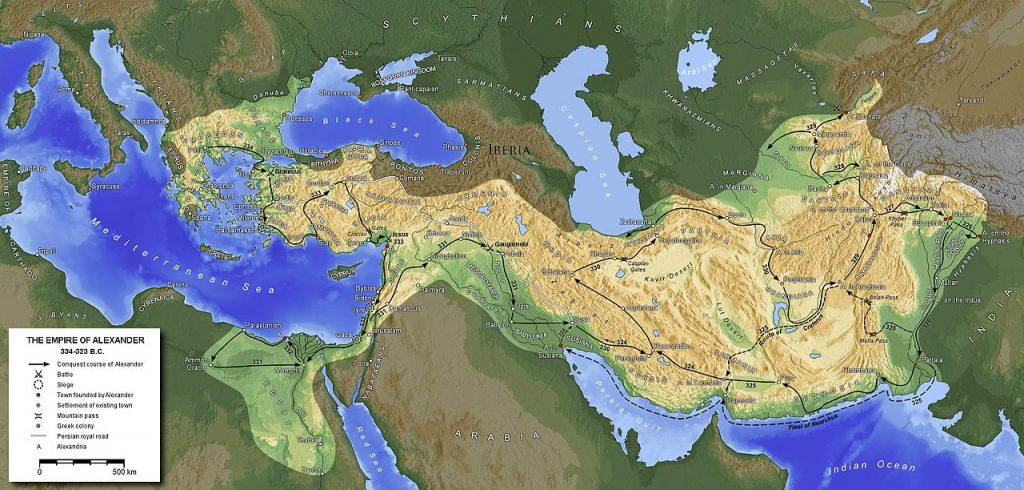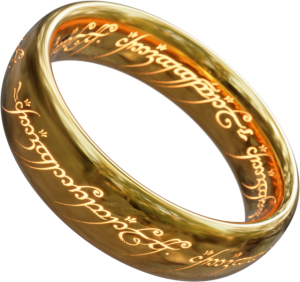In recorded history, countless individuals held the titles of king, and sought to rule and conquer to achieve greatness and prestige. The Kingdom of Macedonia produced two such individuals. These great kings demonstrated awesome military and diplomatic ability that allowed their actions to have profoundly impacted human civilization.1 One king is known to history as arguably one of the greatest conquers of the ancient world, Alexander the Great. The other king was his father, Philip II of Macedonia.2 The rule of Philip II saw the rise of Macedonia from a weak state unto a powerful and influential state that would come to dominate the Greek peninsula. Philip was able to transform his state by reorganizing the military and beginning successful military campaigns.3 A young Alexander had been groomed to one day take reigns Macedonia and he was able to take the legacy created by his father and built upon it. Alexanders military exploits ultimately immortalized himself in history as a legendary figure of great significance.

Philip II rose to the Macedonian throne in 359 BCE. He was twenty-four years of age. Due to the unstable and weak position of Macedonia in his youth, Philip lived as a political hostage in Thebes, where he would learn military strategy and different customs. As a child Philip demonstrated great ability to learn and understand, often said to have been a genius. At the beginning of his reign Macedonia was not a powerful state by any means. It was a divided nation between Upper Macedonia and Lower Macedonia that was governed by sets of powerful families with great influence.4 It possessed a relatively weak and poorly trained army, who mostly fought to survive against invading foreign powers. Macedonia was weak economically and institutionally, and surrounded by more powerful neighbors. It was bordered by the Illyrians to the north, Thrace to the east, and Epirus to the west who often preyed upon the weak nation through invasions and occupation.5
Philip II demonstrated great prowess in military, political, and diplomatic affairs. One of the first actions he took as King was to reorganize the military by increasing the size and therefore power of the Macedonian military, creating the famous Macedonian phalanx and a professional infantry core unit. Phillip demonstrated his diplomatic skill by using the act of marriage to secure numerous alliances, often taking foreign wives.6 Philip, through strategic planning and maneuvering, was able to use his new army to make Macedonia the hegemonic power in Greece through conquest. Upon Philip’s death, Macedonia had conquered Greece and set itself on a trajectory of conquest over much of Asia.7
Alexander was born in July 356 BCE, and was groomed to take the throne. It was said that Alexander was taught physical education by Leonidas and intellectually by Lysimachus of Acarnania, and by Aristotle. He was taught and given Aristotle’s edition of Homer’s works, which he kept as his most valuable possession. He grew to believe in Homeric notion of honor and glory as measurements of personal worth, trying to emulate his heroes Heracles and Achilles. The young Alexander proved to be a great student and demonstrated scholarly skill and interests. His studies came to an end at the age of sixteen, when he was named regent in his father’s absence. Alexander quickly began to showcase his talents as he was able end a revolt. His first military campaign being a success, his father eventually gave him command of the left flank of the Macedonian army, where Alexander continued to achieve military and diplomatic successes.8

Alexander ascended to the Macedonian throne upon the death of his father Philip, who was assassinated before he could launch his campaign to conquer Persia. The young Alexander was twenty-years old. Alexander took reins of his father’s work and set out to achieve success. He fulfilled Philip’s ambitious goal of conquering Asia Minor. In the autumn of 333, Alexander crushed King Darius III of Persia. Alexander had conquered the famed Persian Empire and expanded his empire. With the support of his loyal army, Alexander planned on conquering India, which was only ended by the refusal of his Macedonian troops to continue. Alexander the Great died in Babylon in 323 after falling ill at the age of thirty-three, having never lost a military battle. His legacy, however, continues to influence human history to present day. He is credited with spreading Hellenic culture throughout the areas he conquered.9
- Salem Press Biographical Encyclopedia, 2017, s.v., “Alexander the Great,” by Clark G. Reynolds. ↵
- Edmund M. Burke, “Philip II and Alexander the Great,” Military Affairs vol. 47, no. 2 (1988): 67-70. ↵
- Edward M. Anson, Alexander the Great: Themes and Issues (London: Bloomsbury Pub, 2013., 2013), 43-44. ↵
- Ian Worthington, Alexander the Great : Man and God (Routledge, 2014), 15. ↵
- G. T. Griffith, “The Macedonian Background,” Greece & Rome, vol. 12, no. 2 (1965): 125–26. ↵
- Edward M. Anson, Alexander the Great: Themes and Issues (London: Bloomsbury Pub, 2013), 54. ↵
- Ian Worthington, Alexander the Great : Man and God (Routledge, 2014), 25. ↵
- Ian Worthington, Alexander the Great : Man and God (Routledge, 2014), 36-37. ↵
- Salem Press Biographical Encyclopedia, 2017, s.v., “Alexander the Great,” by Clark G. Reynolds. ↵



42 comments
Nathan Hudson
I knew of Alexander but not to the detail explained in this article. To be taught by Leonidas and Aristotle is completely insane. Alexander was born and bread to be a conqueror. His father was a great example to follow because Philip himself accomplished a great feat as well: building the Macedonia into the superpower it was. Without Philip’s leadership, Macedonia would not have been in the position it was in, which was a recipe for a great king.
Fumei P.
Alexander carried on his Fathers legacy, Philip II, by being a great military and politician. A natural born leader, he followed in his father’s footsteps. Alexander was succesful in his campaign to conquer Aisa Minor, and his ambitions were even greater than his fathers with dreams of expanding his empire to India. He lived a short life according to today’s standard, but his military prowess and accomplishments remain quite impressive.
Zander Barrera
Phillip and Alexander literally turned Macedonia from a nation falling into oblivion into a conquering world power able to take the Persians and even the on Romans during Alexander’s reign. I really like how you touched on both leaders enough to give us an idea of the abilities and their accomplishments but left enough for us to look deeper for our selves. Really good source work and well constructed all around a well deserved congrats.
Luis Morales
This is a riveting article that’s tells the amazing story of a father and son. I never really knew much about Phillip II, except that he was the father of Alexander the Great. However, it is interesting to see how young Phillip was the start of a legacy that would with stand the test of time. It is amazing and astonishing that both Phillip and Alexander were so young when they began to rule. I cannot imagine ruling a country at the age of twenty. Your article was easy to read and it taught me some interesting facts, like who was Phillip II and how large was the Macedonian Empire.
Evian-loren Salgado
The stories of Phillip II and Alexander the Great are certainly legendary. Each of them were both extraordinary as shown in this well written article. Phillip II turned the kingdom of Macedonia around by strengthening its military and solidifying alliances with other leaders. Alexander the Great showed his skill with strategy as he never lost a battle and made sure to continue his fathers legacy. Overall this was a very interesting article to read.
Auroara-Juhl Nikkels
It is funny to me how two of the greatest leaders were father and son. But it also totally makes sense because they would have been taught the same and whatever Philip the II had learned, he would have taught Alexander the Great. I knew little bits and pieces of their history but not a lot. Your article was easy to understand and it taught me some interesting facts, like how young Alexander was. I knew he was young but not twenty.
Sofia
I am amazed at the idea of putting someone so young in such a position of power. Although Alexander was prepared for the task of ruling with the best intellectuals of the time he was a teenager. Still he managed to prove he was ready to lead a full empire’s army and made it one of the greatests’ in history. It taught me how strategy is equally or even more important than the number troops.
Christopher Martinez
Through this article I’ve learned that like father like son Alexander the great was a clear mirror image of his father in every way and act following his fathers footsteps. It amazes me that at the age of only 16 years and the years to follow he took control of the left flank of his father’s/nations army. As we grew we all heard at some point the story of Alexander The Great and it makes me wonder without the willingness of his father’s might to see his country prosper and reign above other nations how would the nation of Mesopotamia been? Alexander was seen to be as a literal genius by his peers and his own father to be the next ruler and curiosity runs in my mind what his next moves as a leader would have been if he didn’t die at 33 and would they have taken over India as planned?
Raymond Davila
This article enlightened me about the fact that not only was Alexander The Great a powerful and great ruler but also his father Philip II. It also made me think that if Alexander’s father wasn’t as great as he was, would Alexander still have been able to conquer most of the known world of the time. And if his father was an even greater man would we still call Alexander by his tile “The Great” or would we call his father that?
Noah Laing
I learned through this article that Alexander the Great was put in the position for power at a young age due to his father. Alexander is one of the great leaders throughout all of history and was able to use strategies that impacted the concept of war. Due to his revolutionary strategies for war and confidence, he was able to conquer the Persian Empire, which to this day is still one of the greatest accomplishments by an individual in war.